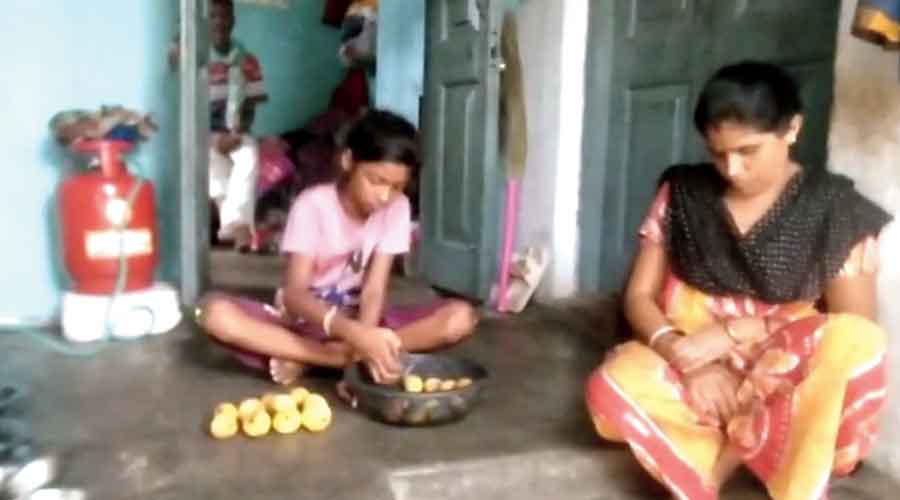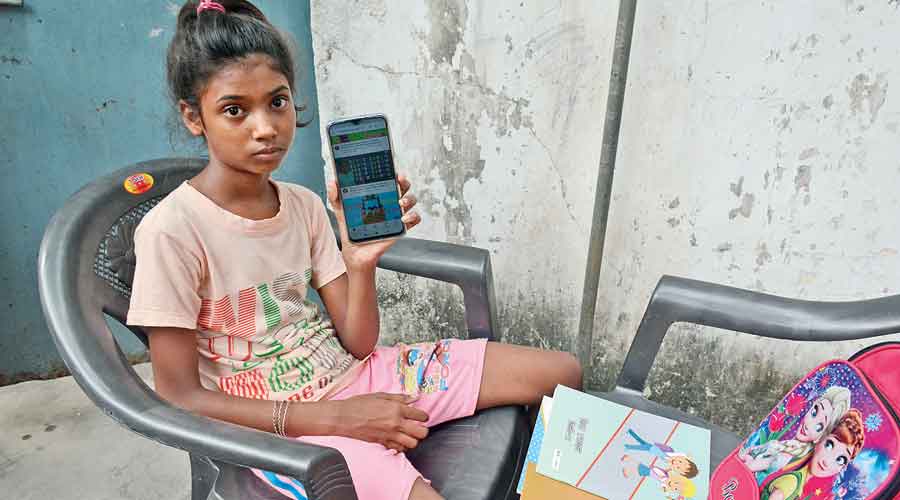⚫A second-year student of mathematics honours at Delhi’s Lady Shri Ram College, Aishwarya Reddy, 19, had asked for a laptop, even a second-hand one, to continue her online classes during the Covid lockdown. But her father, a motorcycle mechanic, could not fulfil her request. In November last year, Aishwarya allegedly committed suicide at her home in Telangana, calling herself a “burden to her family” in a purported suicide note. She had scored 98.5 per cent in Class XII.
⚫ Eleven-year-old Tulsi Kumari, a Class V student at the government-run middle school in Bagunhatu in Jamshedpur, sold mangoes by the roadside so that she can buy a new smartphone to attend online classes. Her father had fractured his legs in a mishap and she was staying at an outhouse in Bistupur. Her video was shared widely on social media leading to a Mumbai-based businessman not only buying a dozen mangoes from her for Rs 10,000 each but also arranging a smartphone and a tutor.
The two cases have made Jharkhand director-general of police Niraj Sinha take an innovative step to bridge the digital divide hampering students by constituting “smartphone banks” in all police stations across the state.
“These two cases really disturbed me and made me think about developing smartphone banks for helping our meritorious and poor students who are deprived of online classes due to lack of devices as almost all educational institutions are closed due to the Covid-induced lockdown. I have asked my colleagues for suggestions based on my request for setting up smartphone banks. We shall make improvements and carry the initiative forward after gauging the response,” Sinha, a 1987-batch IPS officer, told The Telegraph on Wednesday.
A directive issued by Sinha on Wednesday to the senior superintendents of police of Jamshedpur, Ranchi and Dhanbad and superintendents of police in the remaining 21 districts asked them to start smartphone banks at all police stations (over 527 in the state).
“The smartphone banks have to be set up at all police stations and also at the district-level where (interested) people can deposit their second-hand and used laptops, smartphones and even desktops. The police station officials will have to maintain a daily register of the equipment deposited and also submit a receipt of the items to the users so that they can be assured that in case of misuse of the gadgets they will not be held legally responsible,” the directive said.
The daily register would contain the name and address of the depositor, IMEI number of the mobile phone, unique identity number of laptop, date and time of depositing the gadgets, etc. The collected gadgets should be deposited at the earliest to the district-level smartphone banks.

Tulsi arranges mangoes at her home in Bistupur on Wednesday. Bhola Prasad
“The gadgets would be given to poor but meritorious students based on the written recommendation of principal or educational institution heads. The principal or institutional heads should provide written certification about income group of the student, unavailability of gadgets and academic performance,” the directive said.
While giving the gadgets, the district police should take a letter from the students containing their name, address, educational institution’s name, smartphone IMEI number or laptop unique ID and date and time of receipt of the items.
According to Manis Kumar Jha, principal scientist at the CSIR-National Metallurgical Laboratory, Jamshedpur, who is doing research on electronic waste recycling, Jharkhand generates four million metric tonnes of e-waste annually.











